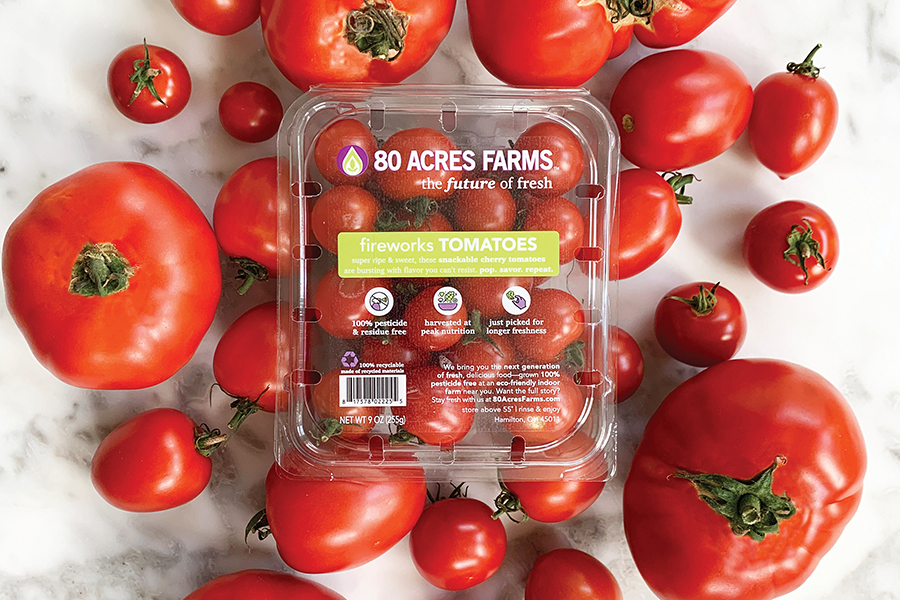Home > Ohio > Robots Take Ag Innovation to the Next Level at 80 Acres Farms
Robots Take Ag Innovation to the Next Level at 80 Acres Farms
In partnership with: Ohio Department of Agriculture
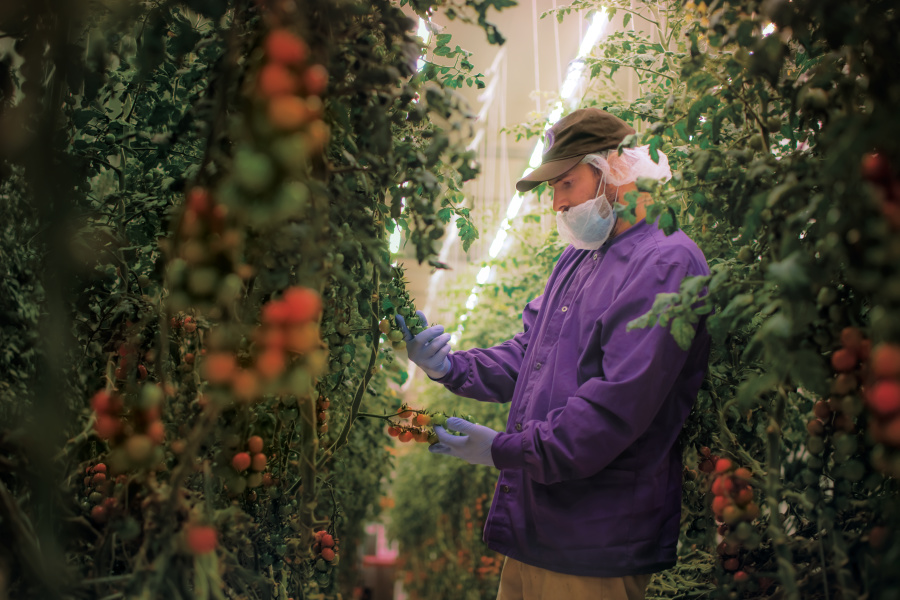
You might expect to see robots in the latest sci-fi movie, high-volume distribution warehouse or auto manufacturing plant – but what about on the farm? In Hamilton, Ohio, 80 Acres Farms is making this high-tech dream a reality.
The completely indoor farm, which has several locations in Ohio (plus Alabama, North Carolina, Arkansas, and New York City), operates with the mission to overhaul how crops are grown using innovative robotics, LED lighting technology, and automation.
“My partner, Tisha Livingston, and I had both been in the food industry for some time and have seen the supply chain problems in produce firsthand,” CEO Mike Zelkind says. “We’ve worked with many farmers over the years and saw how challenging farming careers are, primarily because farmers can’t control their environment.”
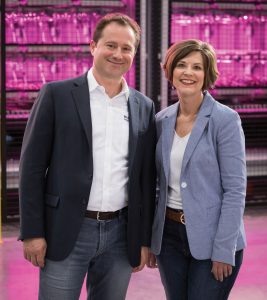
The team felt there had to be a more efficient way and soon got to work updating some of farming’s thousand-year-old methods with cutting-edge technology. Their research included trips to Europe and Japan, and, ultimately, 80 Acres Farms decided to develop their own technology starting in 2016. Realizing that they couldn’t do this alone, 80 Acres Farms formed a joint venture in 2019 with Dutch climate specialist Priva and the United Kingdom’s largest online grocer, Ocado. Named Infinite Acres, the organization is based in the Netherlands.
See more: Ohio Heifer Center Researches for the Future
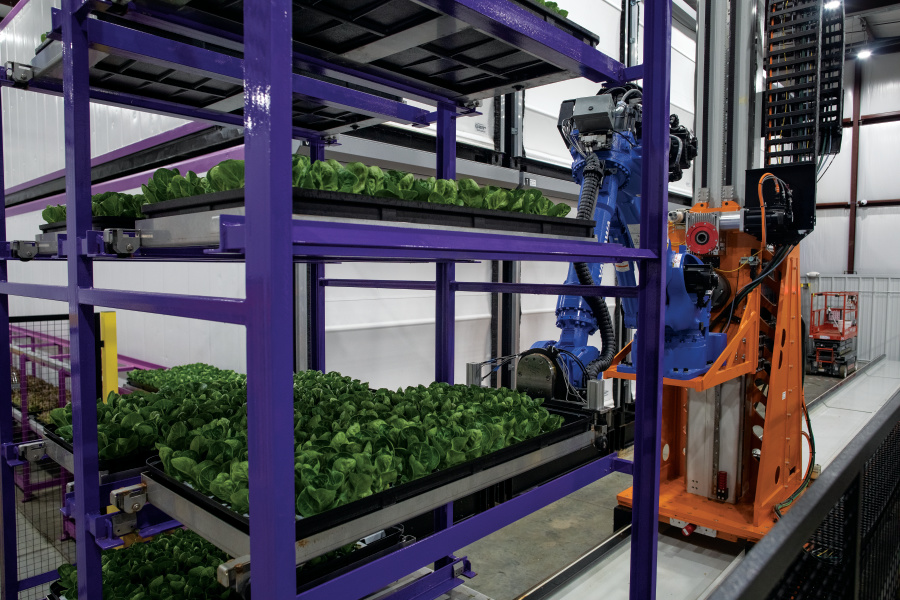
Cutting Costs with Tech
80 Acres Farms’ technology helps cut costs by being more efficient than other indoor or vertical farms.
“With indoor farming, some of the biggest expenses include energy and labor,” Zelkind says. “Because of the efficacy of LED lights, you need less lighting and equipment. We wanted to reduce labor, but we didn’t automate just for the sake of automating – we automated the backbreaking work.”
This work includes tasks like seeding, transplanting, and moving large trays that pose the most significant risks to employee safety. Plus, the robots can complete the jobs quicker, which ultimately delivers the orders to consumers’ tables faster.
Although the robots are speeding up efficiency, there’s no need to worry that they’ll make actual humans redundant. “We still need quality farming and agricultural professionals, machine operators, and crop scientists to be successful,” Zelkind says.
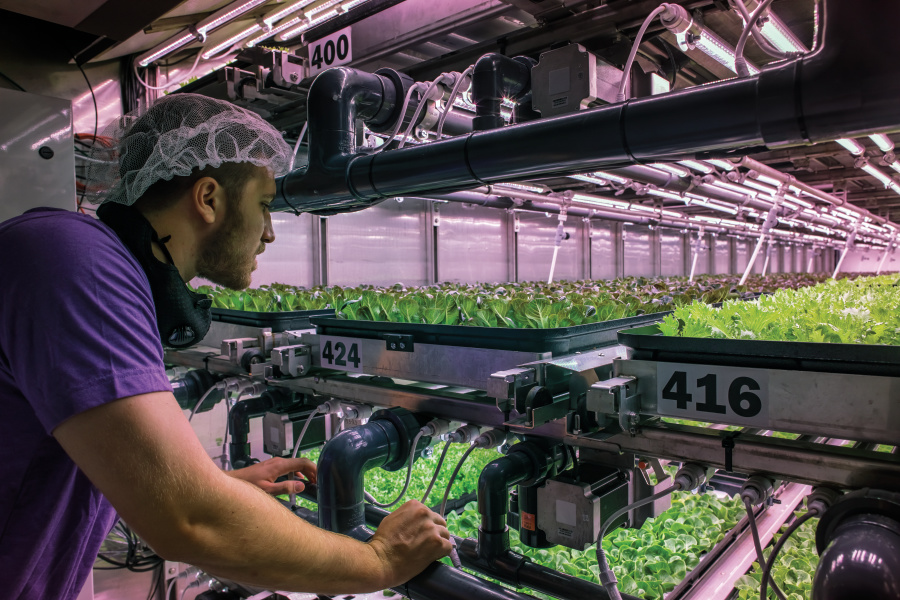
High-Tech, High-Quality
Currently, 80 Acres Farms locations focus on growing specialty produce: leafy greens, microgreens, tomatoes, cucumbers, and a small number of peppers. Though these farms are entirely indoors, the name 80 Acres Farms comes from the amount of food that they can grow – not the amount of land used to grow it. Zelkind says consumers can find 80 Acres Farms produce in local grocery stores, including Kroger, Giant Eagle, Whole Foods Market, Dorothy Lane Market, and Jungle Jim’s International Market, among others. They also partner with several restaurants and sell through broad-line distributors.
Along with robots, 80 Acres Farms utilizes technology encompassing lighting, irrigation, fertilization, and sensors within the farms.
“There’s a lot of technology all around. We’re finding the right recipe to grow each crop,” Zelkind says. “That recipe produces the highest quality, flavor, shelf life, and nutrition consistently all year long. It’s a win-win for the customer and the consumer.”
See more: Local Farm Families Advance with High-Tech Dairy Robots
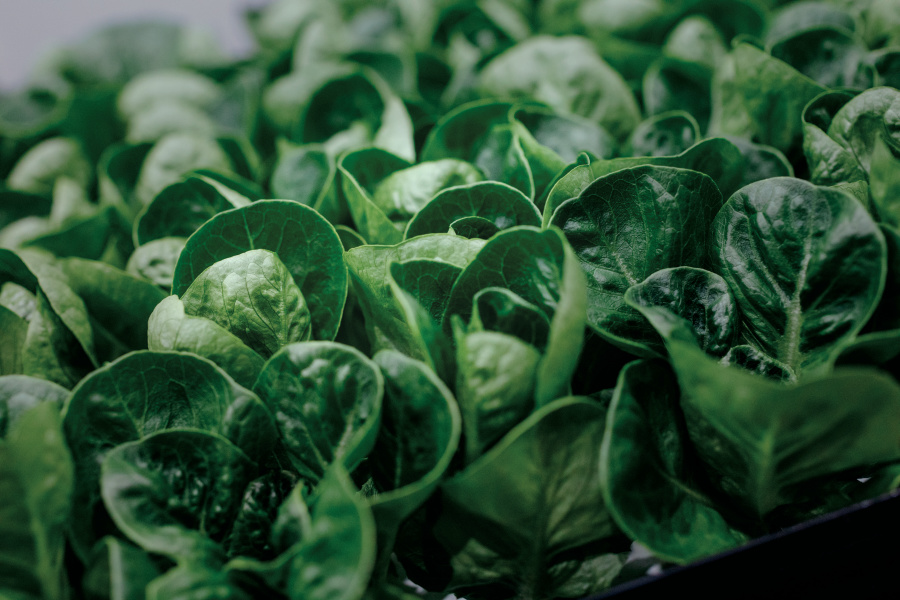
Just the Beginning
Zelkind is excited about the future of technology in agriculture, and he says that 80 Acres Farms has just begun innovating.
“For the first time, we’re growing based on science, not just gut feeling,” he says. “We’re learning so much more about what plants need. Every month, we’re getting two years smarter. It’s not technology just for technology’s sake. We’re focused on building farms that are socially, sustainably, and economically responsible.”
80 Acres Farms plans to introduce strawberries next – but the broader goal is to learn how to create and drive nutrition naturally.
One thing is for sure: soon, robots and farmers could very well usher agriculture into the future.
